
Filter News
Area of Research
- Advanced Manufacturing (3)
- Biology and Environment (32)
- Computer Science (2)
- Energy Science (51)
- Fusion and Fission (1)
- Isotopes (1)
- Materials (24)
- Materials for Computing (3)
- National Security (20)
- Neutron Science (12)
- Nuclear Science and Technology (1)
- Quantum information Science (1)
- Supercomputing (31)
News Type
News Topics
- (-) Big Data (20)
- (-) Coronavirus (23)
- (-) Cybersecurity (23)
- (-) Element Discovery (1)
- (-) Machine Learning (23)
- (-) Quantum Science (36)
- 3-D Printing/Advanced Manufacturing (61)
- Advanced Reactors (14)
- Artificial Intelligence (44)
- Bioenergy (48)
- Biology (53)
- Biomedical (30)
- Biotechnology (17)
- Buildings (25)
- Chemical Sciences (44)
- Clean Water (9)
- Composites (15)
- Computer Science (77)
- Critical Materials (13)
- Education (3)
- Energy Storage (56)
- Environment (78)
- Exascale Computing (16)
- Fossil Energy (1)
- Frontier (19)
- Fusion (26)
- Grid (23)
- High-Performance Computing (43)
- Hydropower (2)
- Isotopes (33)
- ITER (3)
- Materials (69)
- Materials Science (71)
- Mathematics (5)
- Mercury (6)
- Microelectronics (1)
- Microscopy (28)
- Molten Salt (3)
- Nanotechnology (35)
- National Security (35)
- Neutron Science (64)
- Nuclear Energy (44)
- Partnerships (33)
- Physics (42)
- Polymers (18)
- Quantum Computing (14)
- Security (19)
- Simulation (18)
- Space Exploration (3)
- Statistics (1)
- Summit (24)
- Transportation (38)
Media Contacts
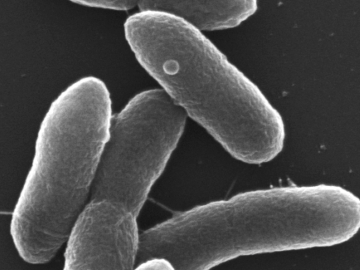
ORNL scientists have modified a single microbe to simultaneously digest five of the most abundant components of lignocellulosic biomass, a big step forward in the development of a cost-effective biochemical conversion process to turn plants into

Experts at the Department of Energy’s Oak Ridge National Laboratory are now offering short-term technical and scientific assistance to entities working to combat the coronavirus through the COVID-19 Technical Assistance Program, an initiative of DOE’s Office of Technology Transitions.

Researchers at ORNL used quantum optics to advance state-of-the-art microscopy and illuminate a path to detecting material properties with greater sensitivity than is possible with traditional tools.
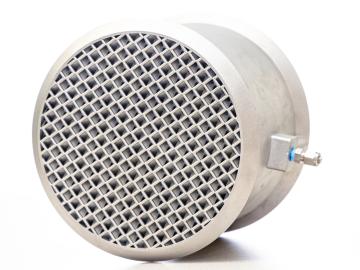
Oak Ridge National Laboratory researchers have designed and additively manufactured a first-of-its-kind aluminum device that enhances the capture of carbon dioxide emitted from fossil fuel plants and other industrial processes.
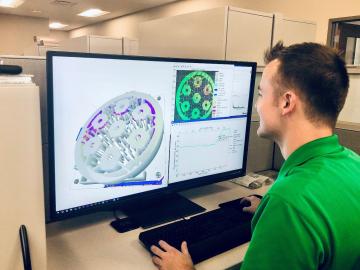
Oak Ridge National Laboratory researchers have developed artificial intelligence software for powder bed 3D printers that assesses the quality of parts in real time, without the need for expensive characterization equipment.
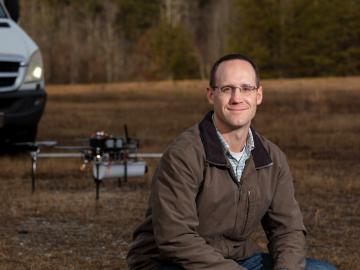
Horizon31, LLC has exclusively licensed a novel communication system that allows users to reliably operate unmanned vehicles such as drones from anywhere in the world using only an internet connection.
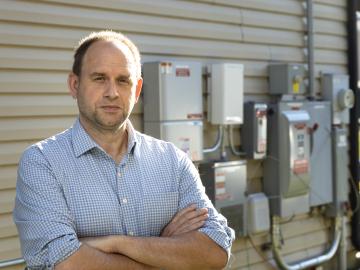
Joe Hagerman, ORNL research lead for buildings integration and controls, understands the impact building technology innovations can have during times of crisis. Over a decade ago, he found himself in the middle of one of the most devastating natural disasters of the century, Hurricane Katrina.

A team led by Dan Jacobson of Oak Ridge National Laboratory used the Summit supercomputer at ORNL to analyze genes from cells in the lung fluid of nine COVID-19 patients compared with 40 control patients.
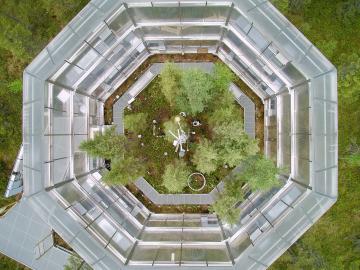
Scientists at Oak Ridge National Laboratory have demonstrated a direct relationship between climate warming and carbon loss in a peatland ecosystem.

Five researchers at the Department of Energy’s Oak Ridge National Laboratory have been named ORNL Corporate Fellows in recognition of significant career accomplishments and continued leadership in their scientific fields.


